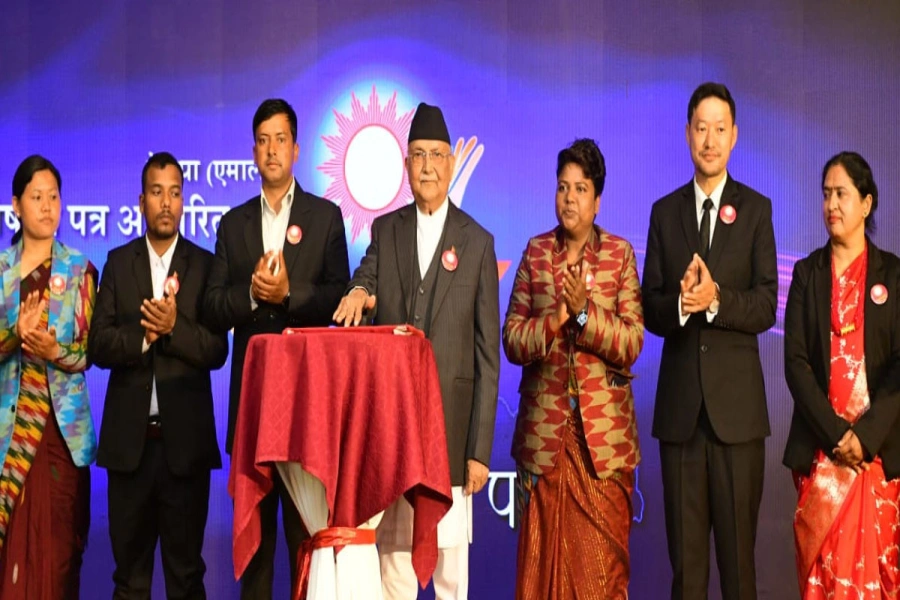When I was studying intermediate level sociology and mass communication, an elderly relative touched my heart with the following Dashain blessing: "I hope you find a job in a development agency." At that time, I did not even imagine that it would become a reality. Nor did I think that it would lead to a fulfilling career.
I started my career with an internship with an NGO and continued it as a full-time job. Then I joined an international agency. With years of experience at my current job, I can confidently say that it is a dynamic, stimulating and startup-like environment. Based on my experience, I wanted to share this piece in order to spark long-term interest and encourage others to consider careers in this sector.
As the development sector continues to play an increasingly pivotal role in supporting the government agencies from federal to local level in promoting social inclusion, previously excluded communities have been strategically empowered to assert their rights. There is a wide range of development organizations operating in Nepal, from domestic to international non-governmental organizations, foundations, corporate social responsibility, nonprofit consulting organizations and research organizations.
A career in the social sector is no longer limited to social science graduates. Currently, students from science, management, engineering, and other backgrounds are joining the academy of tomorrow's leaders and managers that is specifically geared toward the social sector. This is thanks to the rise of development management courses.
7 Essential tips for choosing a career

Why did I choose this career path? I did not choose the development sector because I believed I alone could change the world. However, I felt I could be part of the solution and contribute to bringing a positive impact on people's lives. There are many opportunities and flexibility in the development sector, making it a very rewarding place to work and advance your career. There has been a shift in this sector over the past decade as the opportunities have become much more diverse. The field now offers fulfilling career opportunities for students, young professionals, and even seasoned professionals.
NGOs are not homogeneous. They can be categorized based on many diverse factors such as geography; local, regional, national, international and diverse issues such as education, health, livelihoods and strategic alignments such as rights, service delivery and advocacy. Each of these categories represents different types of work, which includes fieldwork with communities to coordination with a group of NGO executives. NGOs, INGOs, UN agencies and donor agencies all have complementary roles and are indispensable to each other. The emerging and established business sectors have become new partners of the development sector as corporate social responsibility initiatives become more popular.
Find out what kind of job aligns with your talents. It usually has to come from what you really enjoy doing and where your true skills reside. Choosing the type of work you want to do is one of the most critical decisions you can make. There are several possible areas of work, including research and knowledge creation. As a technical person, you may enjoy diving into social issues in order to understand why and how they exist. Working with communities at the local level as well as developing and implementing solutions will appeal to you.
Enter the sector for the right reasons. There is no better reason for working in development than what it offers you. Those who are passionate about improving the lives of most marginalized and disadvantaged communities will find this sector fulfilling. In order to do something worthwhile, you must be driven by a need to live in a caring and compassionate society, one with social justice, equity and freedom.
Here are a few tips I would like to share with you.
The resume is the first impression you make on a recruiter. If you want to sell something, packaging is crucial. When you are building your resume, keep in mind that recruiters may not be able to read your entire resume if it exceeds two pages. You should include the most relevant experiences and skills that correspond with the job description. We all find it difficult to remove parts of our experiences! Your statement could include some of them, or you could mention them at the interview, if necessary.
Are you relevant for the role? If you apply for a job without relevant experience, you will not make a convincing impression of yourself. This means you have not read the job posting, are not self-aware, or have not updated your resume for the position or may come across “too desperate”. This way you are only setting unrealistic expectations for yourself that could lead to disappointment. Rather, focus on building your profile, know your skills and be aware of your limitations. Start small and grow in your career.
Make sure sure you can do the job. Your resume should say so! It takes time to personalize your resume so that when a recruiter has finished reading it, they will want to read your cover letter right away. For example, you can add a section at the top of your resume to highlight your transversal skills. This section should be very direct and no longer than three or four sentences. Next, you need to write a winning motivational statement. Make sure to emphasize why you are the right candidate for the position and what you will contribute to it.
How do I get experience? My first piece of advice is to look out for local NGOs. It is a useful way to gain skills, experience, and grow your network. Secondly, do not underestimate the importance of internships. YES. Internships are a great way to demonstrate your motivation, and gain access to short-term jobs that lead to broader exposure. My final tip? Some organizations and positions are more open to hiring candidates without experience. Apply to many organizations; do not limit yourself to just one or two.
Views expressed are personal.






































